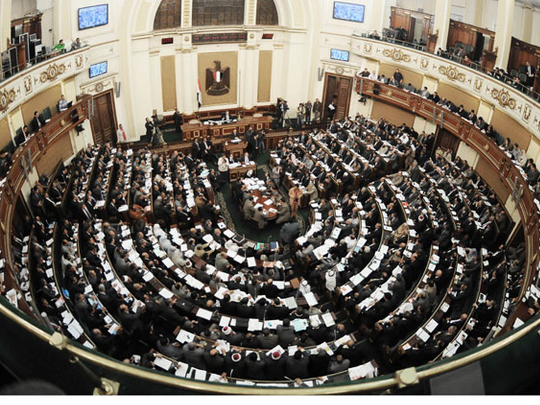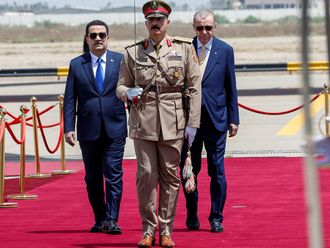
Cairo: Egypt's Islamist-dominated parliament called on Sunday for a vote on stopping US aid, but it is unlikely that such a move would oblige the nation's military rulers to ask Washington to halt $1.5 billion in American aid this year.
The move by the People's Assembly was sparked by the March 1 departure of six American defendants in a case of 43 employees of nonprofit groups accused of using illegal foreign funds to foment unrest in Egypt.
The 43 include 16 Americans, nine of whom were already outside the country when the case was referred to trial. One opted to stay behind and face the trial.
The rest of the 43 are mostly Egyptians, Jordanians, Palestinians and Germans.
The US threatened to cut off aid to Egypt over the issue, but the departure of the six partially eased the crisis, the worst between the two allies in 30 years.
Even if the 508-seat chamber voted to reject US aid, such a move could amount to a symbolic gesture given the wide powers enjoyed by the generals, who collectively act as the presidency, and the likelihood of them approving it in the name of national interest.
The exit of the American defendants, however, kicked off a storm in Egypt, prompting many to accuse the ruling generals of bowing to US pressure and intervening in the work of the judiciary. Egypt's military has benefited the most from the nation's close ties with the United States. It is due to get $1.3 billion in aid this year. US economic assistance for 2012 is about $250 million.
In Sunday's session, lawmakers complained the US had no respect for Egypt's sovereignty and called for a vote on a no-confidence motion in the military-backed government. The move against the government came after four Cabinet ministers briefed the chamber on the case. Lawmakers constantly interrupted their testimonies.
Several lawmakers later said it was the generals and not the government that must be questioned about the nation's "humiliation" by the United States over the case. The generals have said they had nothing to do with the Americans' departure and that the entire affair was in the hands of the judiciary. However, the judge who presided over the trial's opening hearing on February 26 excused himself late last month, citing uneasiness.
Judge Mahmoud Mohammad Shoukri later said in comments to the media that he quit to protest political meddling in the case, which is now being tried by another court, also in Cairo.
"I wish members of the US Congress could listen to you now to realise that this is the parliament of the revolution which does not allow a breach of the nation's sovereignty or interference in its affairs," Parliament Speaker Sa'ad Al Katatni, an Islamist from the chamber's largest party, told lawmakers.
Suggesting that a crisis was looming between the legislature and the Cabinet, Al Katatni adjourned the session until Monday after a two-hour break. He said Cabinet ministers scheduled to answer lawmakers' questions failed to show up.
"It seems that the government is pushing for a crisis with parliament," Al Katatni said..











